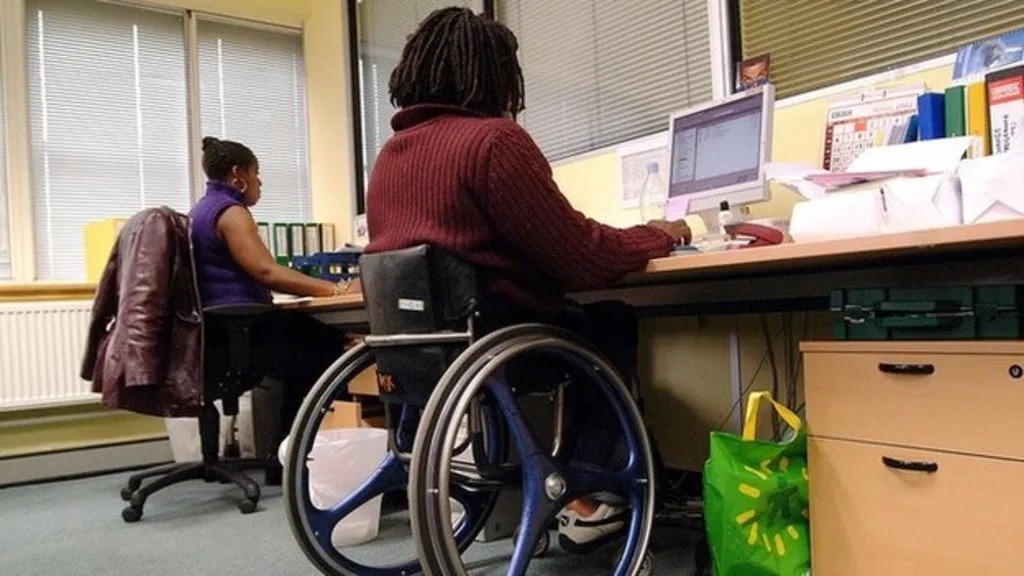Deloitte Global’s first Disability Inclusion @Work 2024: A Global Outlook report provides insights into the workplace experiences of 10,000 respondents with disabilities, chronic health conditions, or who are neurodivergent across in 20 countries. The findings paint a picture of varying attitudes towards self-identification and disclosure, hesitancy in asking employers for workplace accommodations, inability to participate in work events due to a lack of accessibility, and experiences with non-inclusive behaviours.
However, the data also shows various actions and factors that can help enable and accelerate disability inclusion at work. The survey finds that while many respondents experience different levels of difficulty while doing certain activities — such as walking, seeing, hearing, concentrating, and communicating — they do not always identify as being a person with a disability or chronic health condition, or as someone who is neuro-divergent.
The research reflects the views of both those who self-identify as a person with a disability, chronic or long-term health condition or as someone who is neuro-divergent and those who report experiencing at least some level of difficulty in one domain of activity. “Despite companies being more aware of the importance of disability inclusion, this important survey shows that much still remains to be done,” says Emma Codd, Deloitte Global Chief Diversity, Equity, and Inclusion Officer.
“While we see high levels of workplace disclosure, this sits alongside concerns about negative perceptions when it comes to requesting workplace accommodations, requested accommodations being declined, work events that are not accessible, and experiences of non-inclusive behaviours. All these factors combine to create an ‘access gap’ that should be addressed.”
500 Kenyan respondents participated in the Disability Inclusion @ Work 2024: A Global Outlook report – Kenya focus. 51% of the respondents in Kenya identified as persons with a disability or chronic health condition, or as neurodivergent. “We believe that fostering an inclusive workplace is not just a corporate responsibility but a shared imperative for societal progress. At Deloitte, we are committed to championing the potential of individuals with disabilities. By embracing diverse talents and ensuring equitable opportunities, we aim to create an environment where every employee can thrive and make an impact that matters. Inclusion drives innovation, and we recognize that when our workforce reflects the rich diversity of our communities, we all benefit,” notes Doreen Mbogho, Deloitte East Africa Talent Partner.
Formal disclosure at work is high
The global findings reveal that although nearly nine in 10 respondents (88%) have chosen to disclose their condition at work to at least one person or through a human resources information system or self-identification program, many choose not to share their disability, neuro-divergence, or chronic health condition with all their colleagues, with many choosing not to share with peers.
Respondents in Kenya are most likely to say they have disclosed their disability, neuro-divergence, or chronic health condition to a person in human resources. Of those who have chosen not to disclose to their employer, 41% of respondents in Kenya cite not believing that disclosing at work is important as a key reason. Additionally, of those who have chosen to keep their condition private, respondents revealed concerns that they may be discriminated against, that managers would consider their ability to do their job to be impaired, or that their career progression could be impacted.
Accommodations is not yet the norm
While disclosure at work is high, one-quarter of the global respondents who have disclosed with their employer have asked for workplace accommodations. Seventy-five percent have refrained – of those, 43% believe they do not need any; 20% cite fears that their supervisors would perceive the request negatively, and 11% feel discouraged by a negative experience at another company.
A quarter of global respondents who disclosed at work have requested workplace accommodations; this was consistent among respondents in Kenya. Respondents in Kenya who have not requested such accommodations are somewhat less likely than their global counterparts to say this is due to not thinking they needed them.
Globally, almost three-quarters of respondents who have requested a workplace accommodation have had at least one rejected by their employer. The same is true of 83% of respondents in Kenya. 27% of respondents in Kenya whose requested accommodations were rejected were told this was due to it being judged as too difficult to implement compared to 30% globally.
Working from home: many do not have that option
From the global report, nearly half (48%) of the respondents that work from home, at least some of the time, say that their home is more accessible than their employer’s premises. Those that can work from home cite many benefits, including making work easier to get done (57%), reducing threats to their health (55%), providing direct access to care within the home (46%), and reducing discrimination and harassment concerns (29%).
21% of global respondents are not offered the option of working from home (though it would be possible for their job), compared to 17% of respondents in Kenya.
Globally, 38% of respondents say they were unable to attend work events held outside their workplace due to a lack of accessibility. This was consistent among respondents in Kenya.
Non-inclusive behaviours permeate work experiences, but many aren’t reported
In the global report, thirty percent of respondents say that people made negative assumptions about their competence in the past year. Further, over a quarter say they were passed over for a promotion and the same number says their performance was negatively evaluated in the last year.
Respondents in Kenya who say they have experienced micro-aggressions are notably less likely to say they have formally reported these experiences. 24% of Kenyan respondents who have not reported non-inclusive behaviours say the main reason is concern that their supervisor would perceive them as a nuisance / troublemaker.
The path forward: Helping to enable and accelerate disability inclusion at work
Alongside providing this critical insight, this survey has also identified five steps that employers can take to help make meaningful progress on disability inclusion at work:
- Make disability inclusion a visible leadership priority, at board level—accompanied by meaningful actions. Encourage senior role models, which in turn can help enable people with disabilities, chronic health conditions or neurodivergent individuals to thrive and succeed at work.
- Provide roles that help enable strengths—and managers and leaders who both understand the importance of disability inclusion and help enable it.
- Embed accessibility into business as usual throughout the career lifecycle, including ‘moments that matter’.
- Recognize the importance of providing workplace accommodations when they are needed—and that the accommodations application process is clear, timely and stigma-free.
- Provide a disability-inclusive culture, address non-inclusive behaviors, and help enable everyone to report without concern.













Leave a comment